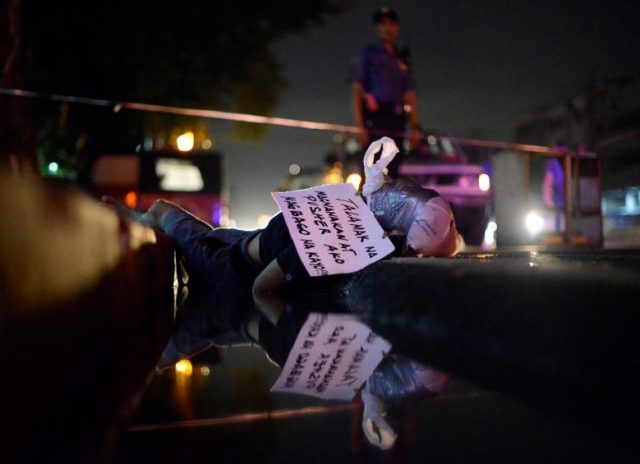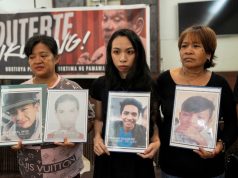
MANILA, Philippines — The Commission on Human Rights urged government on Wednesday, October 11, to “act on the appalling number of extrajudicial killing cases in the country … instead of denying the existence of culture of impunity.”
In a statement, the constitutional body, which has angered President Rodrigo Duterte for its criticism of the thousands of deaths that have marked the war on drugs the administration has been waging since last year, called for “the strengthening of our justice system in addressing the culture of impunity in the Philippines.”
It added that government should “exhaust all the necessary measures to strengthen the criminal justice system and hold to account the perpetrators of these (human rights) violations.”
Since Duterte assumed office last year and signaled the beginning of an aggressive campaign against drugs and criminality, various estimates place the numbers of lives lost at more than 13,000 and counting.
The CHR noted that the recently released 2017 Global Impunity Index showed the Philippines with the highest level of impunity among 69 states surveyed because on the United Nations definition of impunity as “the impossibility, de jure or de facto, of bringing the perpetrators of violations to account — whether in criminal, civil, administrative or disciplinary proceedings — since they are not subject to any inquiry that might lead to their being accused, arrested, tried and, if found guilty, sentenced to appropriate penalties, and to making reparations to their victims.”
It said the failure to prosecute anyone despite thousands of documented deaths “clearly speaks of how the Philippine government failed to fulfill its obligation to conduct investigations, prosecute, and convict those responsible for violating human rights.”
The CHR reminded the government that “waging a war against illegal drugs and acts of terrorism must also be coupled with strong drive to hold perpetrators to account” and that “peace, order, and security of the country can only be obtained if wheels of justice are reinforced to prosecute individuals/organizations responsible for these crimes.”
“Only by bringing the perpetrators to court can affirm the rule of law and restore trust in the institutions of society,” it stressed.
On the other hand, it said impunity “continues to destabilize the social, political, and economic systems which hamper the country’s development and threatens people’s democracy.”
“Free movement of perpetrators in the public, especially those who remain in their powerful positions and have the ability to protect themselves from prosecution, breeds not only loss of trust in justice, but also an ongoing threat and fear-mongering among the public,” it warned.









